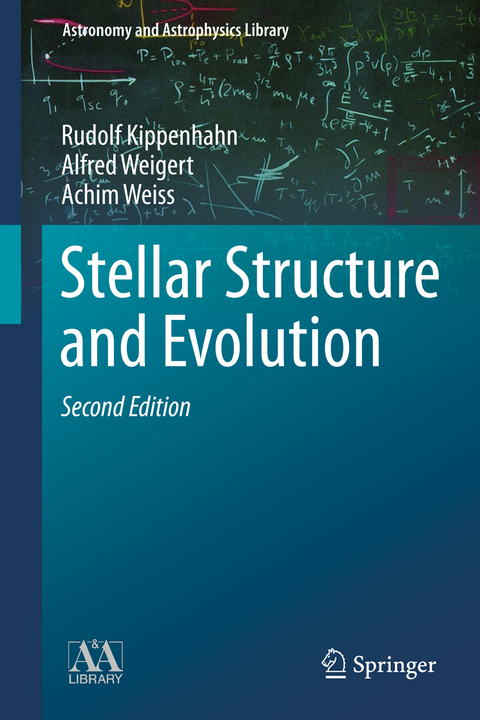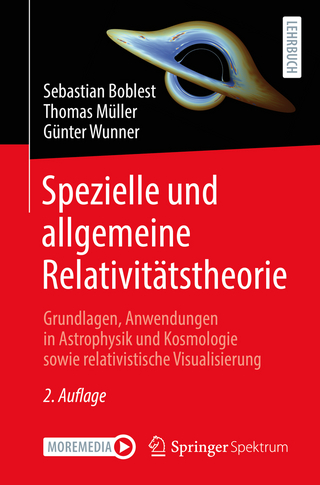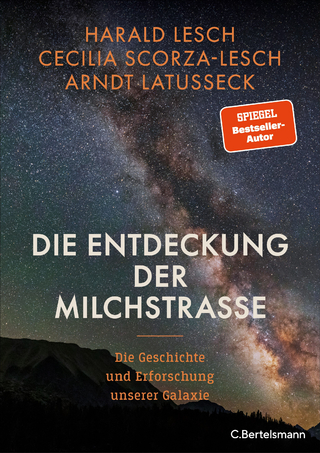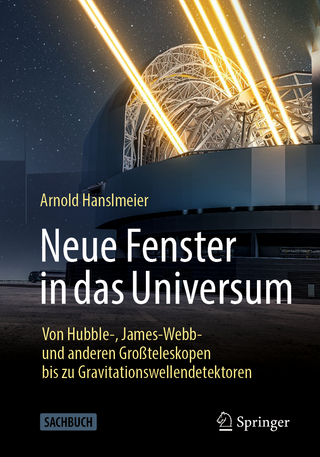
Stellar Structure and Evolution
Springer Berlin (Verlag)
978-3-642-44524-8 (ISBN)
This long-awaited second edition of the classical textbook on Stellar Structure and Evolution by Kippenhahn and Weigert is a thoroughly revised version of the original text. Taking into account modern observational constraints as well as additional physical effects such as mass loss and diffusion, Achim Weiss and Rudolf Kippenhahn have succeeded in bringing the book up to the state-of-the-art with respect to both the presentation of stellar physics and the presentation and interpretation of current sophisticated stellar models. The well-received and proven pedagogical approach of the first edition has been retained.
The book provides a comprehensive treatment of the physics of the stellar interior and the underlying fundamental processes and parameters. The models developed to explain the stability, dynamics and evolution of the stars are presented and great care is taken to detail the various stages in a star's life. Just as the first edition, which remained astandard work for more than 20 years after its first publication, the second edition will be of lasting value not only for students but also for active researchers in astronomy and astrophysics.
Rudolf Kippenhahn is author of very successful academic astronomy books as well of a large number of best-selling popular science books on astronomy, atomic physics and cryptology. From 1965-1975 he was professor for astronomy and astrophysics in Göttingen, Germany, and from 1975-1991 he was the director of the Max-Planck Institute for Astrophysics in Garching. He has received several medals and awards including the Eddington medal by the Royal Astronomical Society and the Karl-Schwarzschild medal of the Astronomische Gesellschaft. Alfred Weigert was professor for astrophysics at the University of Hamburg, Germany. His research forcussed on the simulation of stellar evolution and on the solution of the set of equations describing the structure of stars. He was not only Rudolf Kippenhahn’s co-author of the first edition of Stellar Structure and Evolution, but also author (with Heinrich J. Wendker) of the successful German introductory textbook “Astronomie und Astrophysik”. He died in 1992. Achim Weiss is an astrophysicist at the Max-Planck Instiute for Astrophysics in Garching and lecturer at the Ludwig-Maximilians University in Munich, Germany. Dr. Weiss’ research interests are on stellar evolution of low- and intermediate mass stars, population synthesis and AGB- and post-AGB evolution.
Part I The Basic Equations.- 1 Coordinates, Mass Distribution, and Gravitational Field in Spherical Stars.- 2 Conservation of Momentum.- 3 The Virial Theorem.- 4 Conservation of Energy.- 5 Transport of Energy by Radiation and Conduction.- 6 Stability Against Local, Non-spherical Perturbations.- 7 Transport of Energy by Convection.- 8 The Chemical Composition.- 9 Mass Loss.- Part II The Overall Problem.- 10 The Differential Equations of Stellar Evolution.- 11 Boundary Conditions.- 12 Numerical Procedure.- Part III Properties of Stellar Matter.- 13 The Perfect Gas with Radiation.- 14 Ionization.- 15 The Degenerate Electron Gas.- 16 The Equation of State of Stellar Matter.- 17 Opacity.- 18 Nuclear Energy Production.- Part IV Simple Stellar Models.- 19 Polytropic Gaseous Spheres.- 20 Homology Relations.- 21 Simple Models in the U-V Plane.- 22 The Zero Age Main-Sequence.- 23 Other Main-Sequences.- 24 The Hayashi Line.- 25 Stability Considerations.- Part V Early Stellar Evolution.- 26 The Onset of Star Formation.- 27 The Formation of Protostars.- 28 Pre-Main-Sequence Contraction.- 29 From the Initial to the Present Sun.- 30 Evolution on the Main-Sequence.- Part VI Post-Main-Sequence Evolution.- 31 Evolution Through Helium Burning - Intermediate-Mass Stars.- 32 Evolution Through Helium Burning - Massive Stars.- 33 Evolution Through Helium Burning - Low-Mass Stars.- Part VII Late Phases of Stellar Evolution.- 34 Evolution on the Asymptotic Giant Branch.- 35 Later Phases of Core Evolution.- 36 Final Explosions and Collapse.- Part VIII Compact Objects.- 37 White Dwarfs.- 38 Neutron Stars.- 39 Black Holes.- Part IX Pulsating Stars.- 40 Adiabatic Spherical Pulsations.- 41 Non-adiabatic Spherical Pulsations.- 42 Non-radial Stellar Oscillations.- Part X Stellar Rotation.- 43 The Mechanics of Rotating Stellar Models.- 44 The Thermodynamics of Rotating Stellar Models.- 45 The Angular-Velocity Distribution in Stars.- References.- Index.
From the reviews of the second edition:
"'Stellar Structure and Evolution' is a mathematical and theoretical look at stellar physics. ... As a textbook I found this clear and concise, containing all the important topics ... and as such is an essential learning material for students of astrophysics, but also a good reference-work to fall back upon if something needs to be reminded. Because of it's structure and the way the concepts are presented it also makes for a good textbook for independent study ... ." (Kadri Tinn, AstroMadness.com, March, 2014)
"There is an enormous amount of physics and astronomy in this second edition, more ... than a typical first-year-graduate class, or instructor, can master in a semester. Some of the material cannot easily be found in other books ... . Certainly, anyone planning to teach the subject should have the book ... ." (Virginia Trimble, The Observatory, Vol. 133 (1233), April, 2013)| Erscheint lt. Verlag | 9.11.2014 |
|---|---|
| Reihe/Serie | Astronomy and Astrophysics Library |
| Zusatzinfo | XVIII, 604 p. 186 illus. |
| Verlagsort | Berlin |
| Sprache | englisch |
| Maße | 155 x 235 mm |
| Gewicht | 943 g |
| Themenwelt | Naturwissenschaften ► Physik / Astronomie ► Astronomie / Astrophysik |
| Schlagworte | fluid- and aerodynamics • Models of Stellar Evolution • Piston Model • Rudolf Kippenhahn Book • Stellar Dynamics Textbook • stellar evolution explained • Stellar Models explained • stellar physics textbook • Stellar Structure explained |
| ISBN-10 | 3-642-44524-1 / 3642445241 |
| ISBN-13 | 978-3-642-44524-8 / 9783642445248 |
| Zustand | Neuware |
| Haben Sie eine Frage zum Produkt? |
aus dem Bereich


